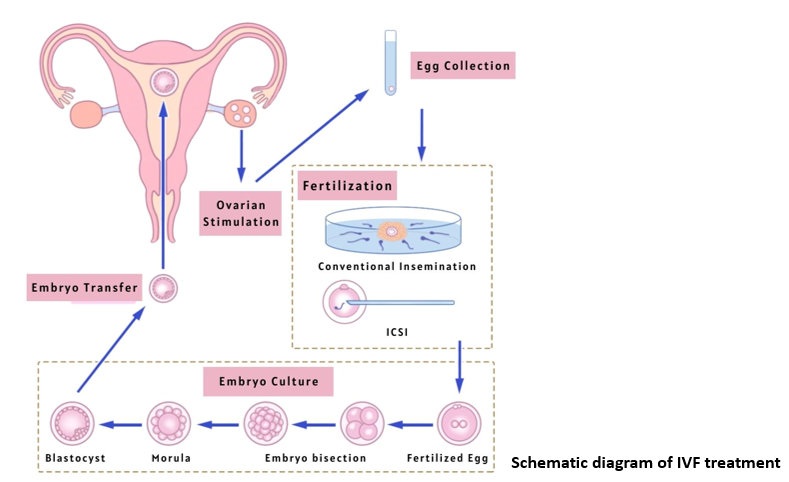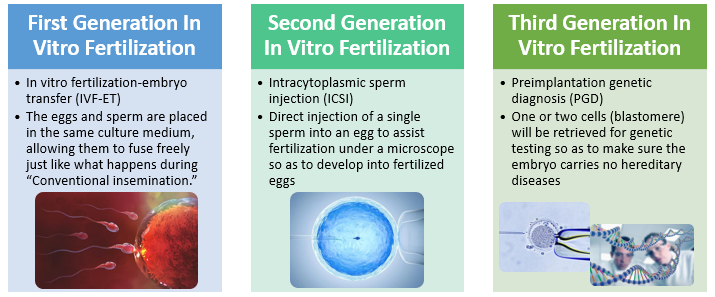What is In-vitro Fertilization (IVF)?
In-vitro fertilization and embryo transfer (IVF), also known as ‘Test-tube baby’, is an effective treatment for infertility.
Natural pregnancy and Intrauterine Insemination are all fertilization in the body, while IVF involves collecting eggs from a woman’s ovaries, fertilizing the eggs with a man’s sperm in the laboratory, culturing these fertilized eggs to become embryos, and returning them into the woman’s womb. Therefore, in addition to in vitro fertilization, the implantation of embryos into the uterus is still required to constitute a complete treatment.

Who should consider the IVF Treatment?
- Women aged 35 or above;
- Women with blocked or damaged fallopian tubes;
- Men with poor semen quality;
- Women suffering from severe endometriosis;
- Women in their advanced reproductive age or low ovarian reserve, where time to conception is critical;
- All other causes of infertility including unexplained infertility, especially if treatments with other methods have been tried and failed;
- Couples with an inherited genetic disease and would like to use IVF combined with preimplantation genetic testing (PGT) to select embryos that do not carry any hereditary diseases for transplantation.
There are different generations of IVF technologies and each generation of IVF technology varies, you have to first understand each generation of technology and the differences between them so that you can choose the right in vitro fertilization (IVF) technology for yourself, hence improving the success rates.

